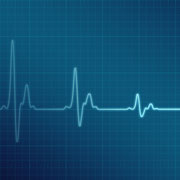With the latest polling showing that 46% of people say the NHS is a very important election issue, and at least an extra £8bn of funding needed by 2020, the next government needs a compelling plan for the NHS.
The Health Foundation and the RSA bring together a panel of leading think tanks and commentators to debate the big health care issues facing politicians in the run-up the 2015 general election.
The Great Health Think Off will debate the challenges, the public’s key concerns and the different policy options being proposed. Dr Jennifer Dixon, Chief Executive of the Health Foundation, will set the scene giving her take on how politicians can support a high quality NHS.
Join us to question the panel and share your views on which ideas to leave out in the cold, and which should become future government policy.
Speakers to include: Dr Jennifer Dixon, Chief Executive, Health Foundation; Andrew Haldenby, Director, Reform; Nick Tyrone, Associate Director of External Affairs, CentreForum; Mary Riddell, The Telegraph; Polly Toynbee, The Guardian; Professor Paul Corrigan CBE, health policy adviser; and Roger Taylor, co-founder, Dr Foster and author of God Bless the NHS
Chair: Matthew Taylor, RSA Chief Executive
Venue: RSA Great Room Auditorium

